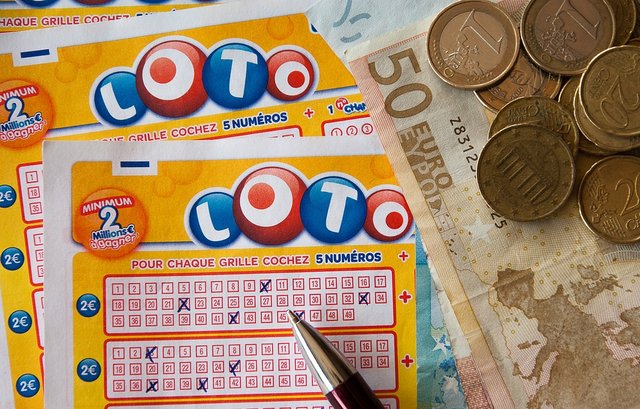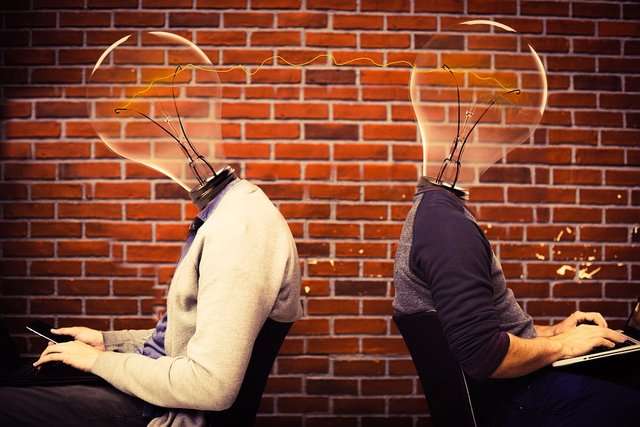The 7 Ways Our Mind Deceive Us without Us Knowing

Credits
The illusion of the scheme
Are we really rational and acting consciously or is our mind a victim of prejudice, and acting on it more often than we think?
Psychologists have discovered several cognitive “biases” : errors of judgment and automatisms of the mind, which can lead us to make bad decisions or distort our perception of reality.
One of the best known is the illusion of the pattern which leads us to believe that there is a pattern where there is not. For example in the lottery game, where late numbers attract more bets from players, as if obeying chance rather than statistic: "number X hasn't come out for months, so it's more likely to come out".
The illusion of the pattern is therefore the illusion that random events (such as the exit of a number) are not really random but respond to a pattern. And gamblers are the main victims.

Credits
Halo effect
Otherwise known as the Horn effect, it is a deception of the mind that causes a single weak point or negative trait to affect a person's perception, brand or whatever. An example? The very widespread idea among American voters until a few years ago, that a President should also be judged on the basis of marital fidelity, as if an unfaithful husband were unable to govern a country well.
Then the Clinton-Lewinsky scandal broke out… And the Americans themselves changed their minds. According to a poll conducted in 2014, Clinton is the most beloved president of the last quarter of a century..

Credits
Pygmalion effect
Also known as "self-fulfilling prophecy" or as the Rosenthal effect it is a form of suggestion. Psychologist Robert Rosenthal subjected a group of elementary school pupils to an IQ test, reporting incorrect results to their teachers. Result: the children that the teachers believed were smarter (even if they weren't) had become the top of the class after a year: the positive influence of the test had increased the children's self-esteem and consequently their academic commitment.
In fact, people tend to conform to the image other individuals have of them, be it a positive or a negative image. Seen from another point of view, it is a form of self-fulfilling prophecy.

Credits
Online disinhibition effect
Maybe you already know it. It refers to the way people behave on the Internet: with less restraint than in real world situations and was first described by psychologist John Suler in 2004: "Online, some people speak and act more often and more intensely than in person ". According to Suler, it is a very evident cognitive phenomenon, represented by the loosening of social restrictions and inhibitions that would otherwise be present in normal face-to-face interaction.
Some Internet users online show a greater propensity for quarrels (on social networks) and emotional catharsis (on dating sites).

Credits
The illusory superiority.
It is a cognitive bias that causes people to overestimate their positive abilities and underestimate their negative ones. Result: the more incompetent they are about something, the less they realize it, and the more they think they are good at doing that thing and judging who does it.
Also known as the Dunning-Kruger effect (by the two scholars who represented it in 1999) it is caused by an unrealistically favorable attitude towards oneself.
There are three broad categories of positive illusions: the inflated assessment of one's abilities, the unrealistic optimism for the future, and the illusion of control.
Before Dunning and Kruger, other scholars had sensed this distortion of our mind. Not least Charles Darwin, who wrote "Ignorance breeds trust more often than knowledge".

Credits
The Tetris effect
If we devote a large amount of time to a particular activity, such as the Tetris video game, we may start thinking and dreaming influenced by this activity. This was shown, among others, by a study by Harvard psychiatrist Robert Stickgold in 2000. According to psychologists, people who had played Tetris for an extended period of time found themselves thinking of the real world as a series of forms. modular, like the tetrominoes (the Tetris figures). The effect extended from goods on supermarket shelves to buildings on a street. This is because full immersion in tetris would involve a type of memory similar to that of procedural memory.

Credits
The cheerleader effect
Also known as the group attractiveness effect, it is the cognitive bias that causes people to think that individuals are more attractive around other good-looking people. According to psychologists it would occur due to the tendency of the brain to calculate the average properties of an object, when viewing a group. In practice, according to scientists, we tend to perceive the faces in a group as a single "average face" that summarizes the characteristics of the individual faces.
I will be wrapping it up here watch out for my post. Thanks for reading!!
Afifa..